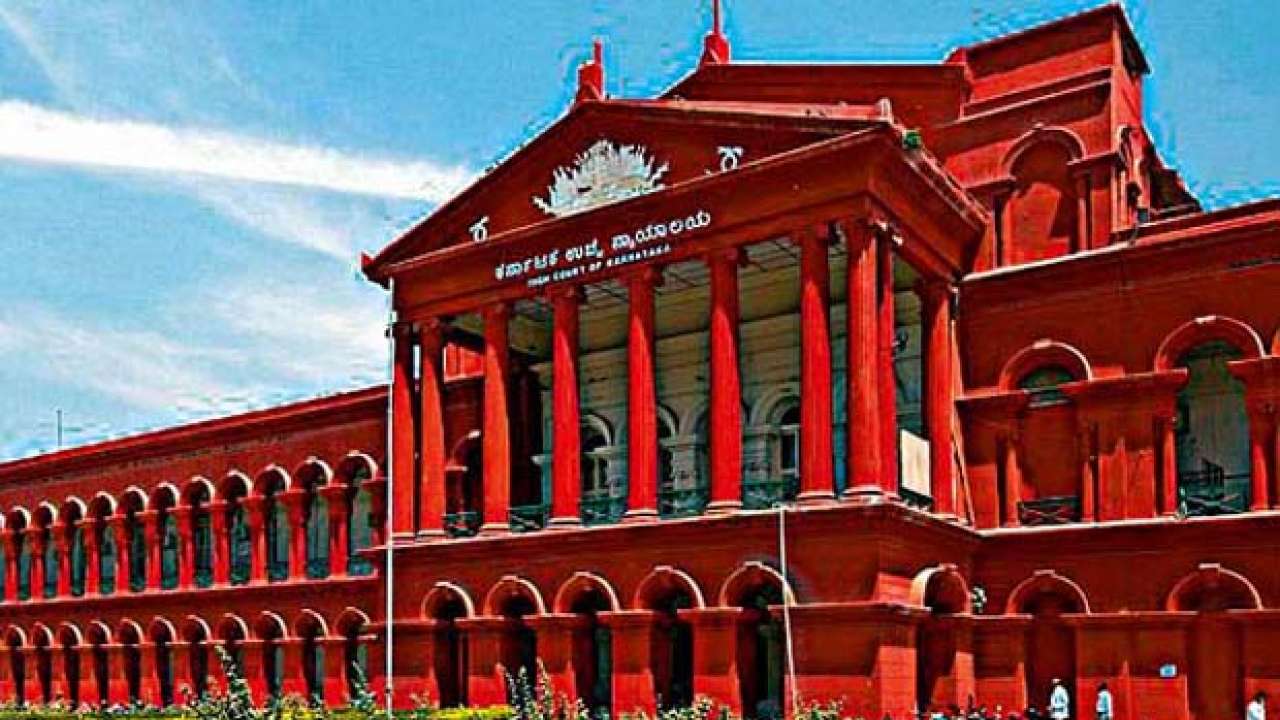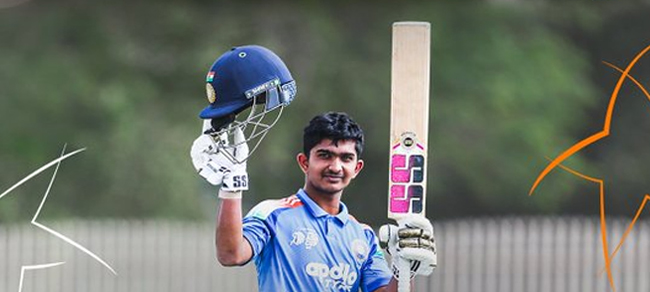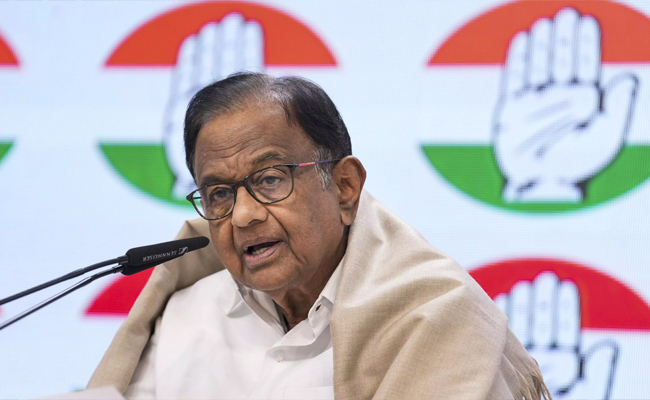Bengaluru, Sep 19: The Karnataka High Court on Monday warned the Bruhat Bengaluru Mahanagara Palike (BBMP) that the court might not be shouting at the civic body, but that does not mean it is not serious about ensuring potholes are covered in the city.
The HC also asked BBMP to be honest about its work.
The division bench headed by Acting Chief Justice Alok Aradhe told the BBMP lawyer, "You convey the sense of urgency. Tell him (BBMP Commissioner) the seriousness of this situation and urgency. If we are not shouting it does not mean we are not serious."
The BBMP advocate informed the court that the number of potholes being filled up is being updated every day and a total of 2,010 potholes had been filled and only 221 potholes remained till September 14, 2022.
To this, the HC said: "You should be able to tell tentatively by when you can fill it up. You are giving 221 as the number. We ask you to be honest. How many potholes?"
The advocate then informed the court that the 221 potholes were on major roads. After much prompting and asking for the number of potholes on other roads, the court was told that there were approximately 2,500 potholes on arterial roads.
The advocate had earlier told the court that he had no idea of the number of potholes on arterial roads.
"If you have issued tenders, you should have estimated how many potholes are there. How many potholes in arterial roads which you have tendered? What is the approximate number?" the court prodded him before the number of approximately 2,500 was submitted.
The court was also informed that 427.12 kilometres of roads were being resurfaced with hot concrete mix. It would be completed in four months after the work order. The court however demanded a date and it was informed that the work would be completed by January 21, 2023.
Earlier, the court said that not giving an outer time limit for completing the work was improper. "There seems to be no positive statement in your reply," the court said.
The court further said that it would take things seriously if the deadlines are not met. "Any deviation, we are going to view seriously. You have to seek an application for seeking extension of timeline fixed by us. If we are satisfied that if it is because of circumstance beyond your control," the time would be extended.
The court also took the BBMP to task about the grievance cells it had set up. The court pointed out that in the "grievance cell some of the numbers have nine digits. Some of the phone numbers are not even working. Is that the type of grievance cell you set up?"
The court was told that it would be looked into.
The proceedings ended with a positive note for the BBMP when the court asked about the website for complaints about potholes.
"You have a website for potholes right? Have you ever used it? Telling us is fine. Anyone in this court has used the website?"
It was the counsel for petitioner who said she had the mobile app and it worked. A pothole was filled and compliance report uploaded. The court said it was glad that the counsel for the petitioner had something positive to say about the BBMP.
The HC has also ordered for the constitution of a three-member committee of officers "who are efficient and who would be able to implement" the filling of potholes and removal of encroachments on stormwater drains (SWDs).
The committee would be constituted by Tuesday and they will file a report to the HC every fortnight. The court said that fixing a deadline was not the end in itself and the real exercise begins after that. Any deviation would incur severe consequence, the court said, adding "Make it clear to them in no uncertain terms".
Commenting on the lethargy shown by the BBMP removing encroachments of SWDs in Bengaluru, the High Court said "construction takes time, demolition does not take time. That is why we want to know how many encroachments you are removing per day?"
The court also made it clear that it will oversee the removal of encroachments. "No other authority will oversee this. It is the subject matter of this public interest litigation."
The counsel informed the court that 2,626 encroachments were identified and as on 16-09-2022 a total of 2,024 have been removed and 602 encroachments remain.
"What sort of grievance mechanism do you have in place? Can any citizen file a complaint on the website? Do you upload the action taken report on the website? the court asked. The court was told such a system existed.
The court then sought information about the Comptroller and Auditor General (CAG) report. "Tell us about the CAG report. It was submitted in September 2021. What have you done to implement it?" the court asked.
The court was told: "We are incorporating it in the work we do." The court then suggested a committee to oversee it.
"What we suggest is you constitute a committee to implement the report of the CAG. That committee should submit us a report periodically," it said.
The court warned that "if these timelines are not adhered to", it would pass orders against the authority. The hearing of the PIL was then adjourned to September 30.
Let the Truth be known. If you read VB and like VB, please be a VB Supporter and Help us deliver the Truth to one and all.
Abu Dhabi (PTI): Kolkata Knight Riders splurged a record-breaking Rs 25.20 to land top Australian all-rounder Cameron Green even as Indian stars Prithvi Shaw and Sarfaraz Khan went unsold in the Indian Premier League players' auction here on Tuesday.
Green surpassed compatriot Mitchell Starc (Rs 24.75 crore) to become the most expensive overseas player at an IPL auction. This was after Kolkata Knight Riders and Chennai Super Kings were involved in an intense bidding war for him before the latter emerged winner.
KKR also went after Venkatesh Iyer before pulling out of the race against Royal Challengers Bengaluru, who fetched the services of the India all-rounder for Rs 7 crore.
As far as Green is concerned, his salary for the season would still be Rs 18 crore (USD 1.9 million) as the rest of the amount will go towards the BCCI's player development programme as per the rules of the auction for foreign players.
Green, who previously turned up for Mumbai Indians and Royal Challengers Bengaluru, has so far played 29 matches in the IPL to aggregate 707 runs and take 16 wickets.
Shaw, however, went unsold despite his fine run of form in the domestic circuit lately, and so was the case with Sarfaraz, who smashed a 22-ball 73 in a Syed Mushtaq Ali Trophy match for Mumbai on Tuesday.
Big-hitting South African batter David Miller was bought by Delhi Capitals for his base price of Rs 2 crore, but New Zealand swashbuckler Devon Conway, whose base price was also Rs 2 crore, went unsold in the auction.
Seasoned South African opener Quinton de Kock returned to his old base Mumbai Indians for a base price of Rs 1 crore.
A total of 359 players -- 246 Indians and 113 overseas players -- are part of the mini auction pool with the 10 franchises bidding to fill up a maximum of 77 slots, including 31 reserved for foreign players.





